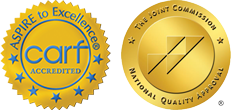Individuals addicted to methamphetamine face a long and challenging road to recovery. Methamphetamine, also known as “meth,” is a powerful and highly addictive stimulant that can have devastating effects on the brain and body.
Meth addiction often leads to intense cravings, paranoia, and hallucinations. To recover from meth addiction, it is essential to seek professional help. Treatment for meth addiction typically includes behavioral therapy, medication, and meth support groups.
The meth recovery process from meth is a lifelong process, but it is possible to live a healthy and drug-free life with treatment. Methamphetamine addiction can be challenging to overcome, but it is possible with the right help and support.
When meth use ends, whether it’s by choice or due to incarceration, the person will experience a “crash.” This can be difficult, marked by intense cravings, fatigue, and depression. The crash is followed by the “withdrawal” phase, which can last for weeks or even months.
Withdrawal symptoms typically begin within 24 hours of the last meth use and can include fatigue, anxiety, depression, and irritability. These symptoms may give way to intense cravings, increased hunger, and trouble sleeping within a few days.
As the week goes on, many people experience a sharp decline in energy levels and mood swings. Some may also start to feel paranoid or nauseous. The Timeline of meth withdrawal can vary from person to person but typically peaks around day 10 before gradually subsiding over the next few weeks. For some people, however, the symptoms may linger for months or even years.
The stages of meth recovery process typically consists of five stages:
Detoxification,
Treatment,
Stabilization
Maintenance,
Do you have a loved one struggling with addiction?
We know how hard that can be. Give us a call to find out what options you have.
Relapse prevention.
Each stage has its challenges and goals, but the overall goal is to help the individual achieve sobriety and live a healthy, productive life.
During detoxification, the individual will stop using methamphetamine, allowing the body to rid itself of the drug. This can be difficult, as individuals may experience withdrawal symptoms such as anxiety, depression, fatigue, and cravings. However, detoxifying is vital to give the body a chance to heal.
Treatment typically follows detoxification and involves counseling, therapy, and other methods to help the individual learn how to live without methamphetamine. This can be challenging, but it is important to remember that treatment is not a one-time event. It is an ongoing journey that requires dedication and effort.
There are a variety of treatment options available, and the best course of action will vary from person to person. However, all treatment plans should focus on helping the individual develop positive coping mechanisms, establish a support network, and build a foundation for long-term recovery. With the right help and support, it is possible to overcome meth addiction and live a healthy, productive life.
The next stage is stabilization, during which the individual begins to rebuild their life without methamphetamine. This can be difficult, as individuals may struggle with cravings and triggers. However, staying focused on sobriety and building a support network of family and friends is important.
Maintenance is the final stage of meth recovery, and it is important to continue to attend therapy and support groups, take medication as prescribed, and make healthy lifestyle choices. Relapse prevention is also an important part of maintenance, as individuals must be aware of their triggers and how to avoid them. With the right help and support, meth recovery is possible.
Ways To Avoid Meth Relapse
According to meth recovery statistics at National Institute on Drug Abuse, over 20 million Americans have tried methamphetamine at least once. About one in 10 will become addicted to those who have tried it. Here are six ways to avoid a meth relapse:
- Get involved in a support group. Many organizations, such as Crystal Meth Anonymous, can provide you with peer support and guidance.
- Take care of yourself physically. Eating a balanced diet, exercising regularly, and getting enough sleep are all vital self-care activities that can help reduce stress and promote positive mental health.
- Avoid triggers. If there are certain people, places, or things that make you want to use meth, it is best to avoid them altogether.
- Be open with your friends and family- A meth addict family member should let their loved ones know about the struggle with meth can help them understand the situation and offer their support
- Seek professional help. Sometimes, meth addiction can be too much to handle on your own. In these cases, seeking professional treatment from a qualified rehab center can be essential for recovery.
- Stay positive.
Meth addiction is a severe disease, but it is treatable. Remember that recovery is possible and focus on the positive changes you are remaking in your life.
If you or someone you love is struggling with meth addiction, remember that help is available. There are many resources and treatment options available to those who need it.





